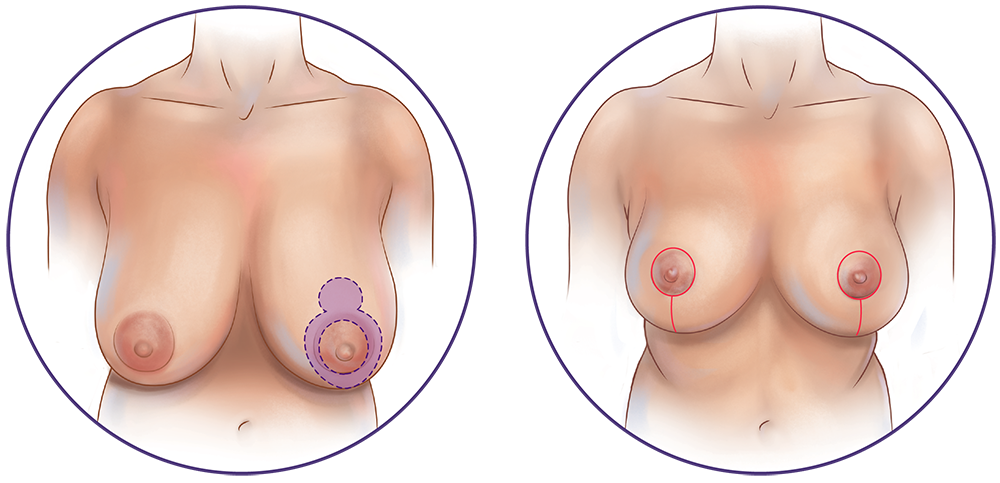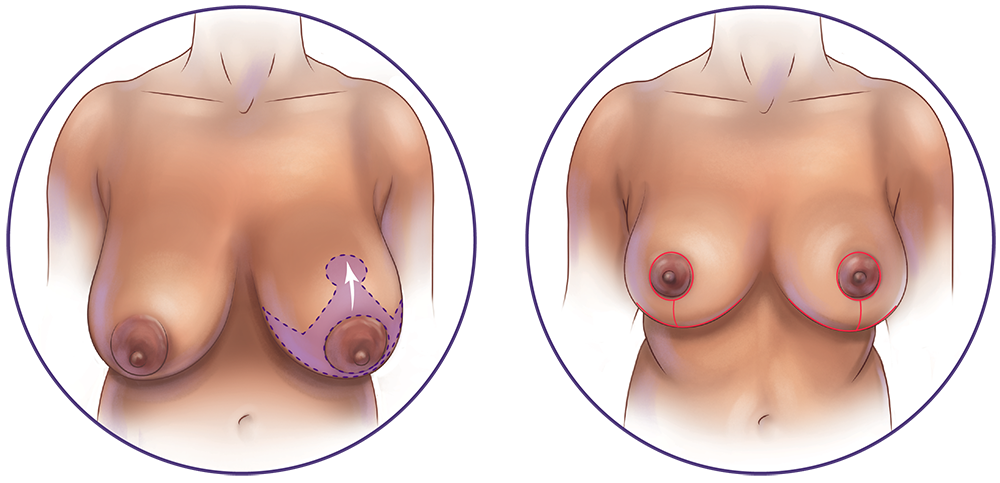Before & AfterPhotos
 View Photo Gallery
View Photo Gallery
Breast reduction surgery entails the removal of skin and tissue from the breast, followed by reshaping and elevating to create a smaller, more proportionate bust size.
Breast reduction involves making incisions on the breast skin to remove the excess breast tissue and skin. This surgery can also reduce the dark skin around the nipple called the areola.
The technique used to reduce the size of your breasts will be determined by your individual anatomy, breast composition, amount of reduction desired, your personal preferences and the surgeon's advice.
In some cases, excess fat may be removed through liposuction in conjunction with the excision techniques described below.
Medications are administered for your comfort during the surgical procedure. The choices include intravenous sedation and general anesthesia. Your doctor will recommend the best choice for you.
Incision options include:
Lollipop Incision
Keyhole Incision
After the incision is made, the nipple – which remains tethered to its original blood and nerve supply – is then repositioned. If necessary the areola diameter is reduced by removing skin around the perimeter. Underlying breast tissue is reduced and the remaining breast tissue is lifted and shaped.
With extremely large breasts, the nipple and areola may need to be removed completely and then repositioned to a higher position on the breast (this is called a free nipple graft). In this case, the nipple and areola will not have sensation after the operation and it will take longer to heal.
The incisions are brought together to reshape the now smaller breast. Sutures are layered deep within the breast tissue to create and support the newly shaped breasts. Sutures, skin adhesives and/or surgical tape close the skin. Incision lines are permanent, but in most cases they will fade over time.



